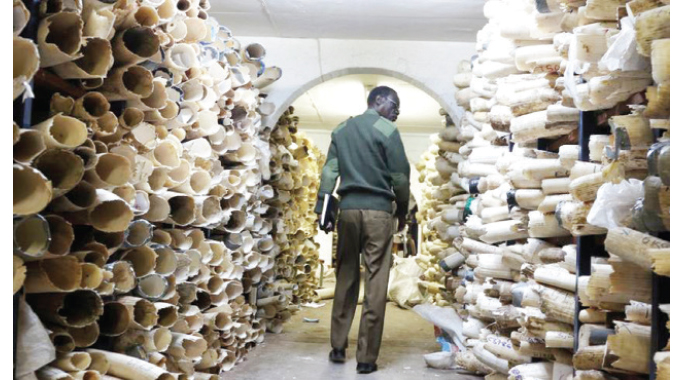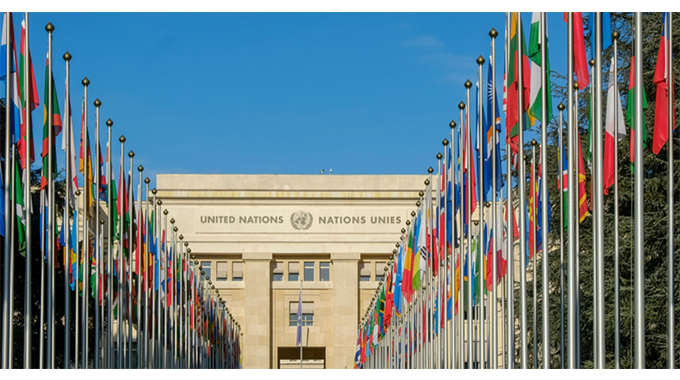Zimbabwe fails to jump out of the CITES ‘bed’

From Emmanuel Koro in Panama City
Zimbabwe this week failed to jump out of the UN CITES (Convention on International Trade in Endangered Species of Fauna and Flora) ‘bed’ full of anti-ivory trade ‘lice.’ The ‘lice’ have ‘bitten’ Zimbabweans and their wildlife for close to half a century since the formation of CITES.
The jump from the CITES ‘bed of biting lice’ was planned before the CoP19 (19th Conference of Parties) lunch break on Tuesday, when the elephant over-populated southern African country of Zimbabwe proposed to have CITES rule 25.6 changed to allow parties to have their votes weighted according to the size of their elephant populations.
Zimbabwe wanted one vote to represent 1% of the world’s total population of a particular species. Although Botswana, Indonesia, and South Africa argued that Zimbabwe’s proposal be given serious consideration, other African countries and Western nations unsurprisingly, shot down the proposal. Without diligent lobbying in the capitals of CITES member states for such a radical change in a UN agency’s voting patterns, nothing is likely to happen at a Conference of the Parties.
Voting, after all, is one of the most sensitive subjects of UN procedure. The UN Security Council has awarded 5 vetoes to just 5 countries — and never altered the five, despite great changes in international economic and political circumstances since 1948. Anyone familiar with the UN knows that one ‘NO’ or ‘YES’ in the Security Council cancels the interests and desires of 192 other countries in the world.
Nigeria opposed the Zimbabwe proposal arguing that at times African countries’ elephant population information is outdated and also unavailable, making the process of weighing votes according to the population size of a species complicated and unreliable.
Although Zimbabwe argued that this proposal be seriously considered because the International Tropical Timber Agreement (ITTA), now known as ITTO uses the same approach in its deliberations, Western nations led by the USA and UK easily ‘masked’ their Security Council sensitivities by arguing that the ITTA is not a UN agency. Therefore, Zimbabwe’s proposal was unprecedented. It was rejected.
No one raised the delicate matter of the UN Security Council in trumpeting the UN principle that UN democratic voting procedure demands that nations are given equal voting powers of one vote per country, without regard to its powers and wealth, etc.

Zimbabwe Minister of Environment, Climate, Tourism and Hospitality Industry Nqobizitha Mangaliso Ndlovu
Nevertheless, former CITES Secretary-General and current President of IWMC-World Conservation Trust, Eugene Lapointe, said: “Zimbabwe sent a strong signal that the Southern African countries are fed up with being punished for having been successful with their conservation programmes.”
Elsewhere at CITES COP19, Zimbabwe Minister of Environment, Climate, Tourism and Hospitality Industry Nqobizitha Mangaliso Ndlovu said that there was nothing for communities in conservation if they are excluded from the meaningful involvement in protecting their flora and fauna with the CITES framework.
Speaking as guest of honour at a CITES CoP19 side event that brought most of the world’s most influential representatives of indigenous and wildlife producer communities, Minister Ndlovu said: “The CITES Secretary-General talks about the need to reflect on how we have fared regarding community involvement in conservation. CITES can’t continue to lag regarding community involvement in its decisions. Without the involvement of communities, CITES remains ineffective.”
Zimbabwe is sitting on more than US$600 million worth of ivory stockpile which it could sell to sustain wildlife management programmes. In 1989, CITES banned the international ivory trade and African countries were expected to push for the lifting of the ban at the COP in Panama.
At the Kasane Elephant Summit in Botswana in 2019, President Mnangagwa and other African leaders spoke strongly about the need for Southern African nations to benefit from their natural resources.

“Let us resolutely affirm our collective position on sustainable elephant conservation management. Let us boldly speak with one voice in the best interest of our communities. The ‘one size fits all’ banning of everything under CITES disregarding the good efforts and investments by our respective governments, is neither sustainable nor desirable,” said President Mnangagwa.
Angola, Botswana, Namibia, Zambia and Zimbabwe have a combined population of more than 250 000 elephants which is 75 percent of the world’s jumbo population.
President Mnangagwa said the global community should consider the voices and concerns of countries that are successfully conserving elephants. He said poverty eradication, economic empowerment and the improvement in the quality of life of rural communities can only be enhanced if countries are allowed to trade in ivory.
African leaders have said the biggest threat to successful wildlife conservation and to economic well-being of Africa is the dictation by outsiders who include Western governments and animal rights groups on how Africa should manage and use its wildlife.

United Nations
It should be the responsibility of African governments to decide how to manage their wildlife for the benefit of their respective citizens. The communities should benefit from their wildlife hence the urgent need to lift the ban on international ivory trade.
Southern Africa, as already alluded to, is home to 75 percent of the world elephant population and as such the ban on ivory trade has a huge impact on the region’s conservation programmes. Proceeds from natural resources such as elephants have over the years been used by different African countries to fund community projects such as building clinics, roads, bridges and other such projects meant to empower communities and improve their quality of life.
Western countries that are genuinely committed to wildlife conservation should therefore support Southern African governments’ position to allow elephant hunting and legal ivory trade.
*Emmanuel Koro is a Johannesburg-based independent environmental journalist who writes on environmental and developmental issues in Africa.











Comments